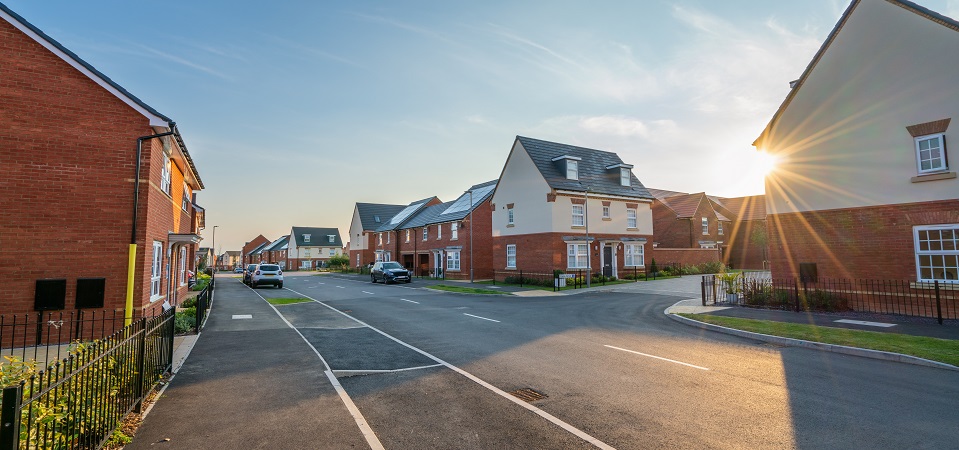The WHN property team explain the difference between public and private roads and what to be aware of if your property ownership includes access by and the maintenance of a private road.
Private Road Vs Public Road: What’s the Difference?
A public road is a road where responsibility for its repair, maintenance and upkeep, in the vast number of cases, does not rest with the landowner. Normally, it will be the responsibility of the local highways authority, usually through the local council or county council, to deal with repairs and maintenance.
As the name suggests, if a road is public, there is an automatic right of way over it for the benefit of the general public.
If a road is not public, by definition it is private. Responsibility for repairs of the road fall upon the landowner. Equally, there will only be rights of way over a private road if the landowner’s title deeds state this.
How to Determine Private Roads Vs Public Roads
Issues regarding private roads can arise in a number of different situations. You may be thinking of purchasing a piece of land with the intention of developing it and building properties on it, whether residential or commercial. From a very early stage, it is crucial that the title deeds are inspected so that the position regarding access and roads can be understood.
A specific highways search should also be carried out. This produces very detailed information and can highlight the smallest gap between a property’s boundary and where a public road starts.
Legally, even if there is a gap of only a few centimetres in width, there would be a problem with access unless the deeds granted an appropriate right of way.
These small gaps between the boundary of a piece of land and the boundary of where public road starts are called ‘ransom strips’, because the owner of the ransom strip can demand large amounts of money to either sell the strip or grant rights of way over it.
As well as a detailed investigation of the deeds and carrying out the relevant and detailed searches, it is often the case that indemnity insurance should be obtained to cover the risk of a third party claiming there wasn’t a sufficient and valid right of way to access a piece of land.
While this can be expensive to obtain, it is often cheaper compared to the cost of getting into a full-blown legal dispute with a third party over access, where costs may escalate into thousands of pounds to resolve.
Private Road Laws for New Builds & Housing Estates
A private road is also relevant on a housing estate. While most roads on the larger estates built by national property developers will ultimately become public roads, if you are buying a new house in a new estate, the roads may not yet be public. It is therefore important that the title deeds to the new property grant rights of way.
It is also ideal when purchasing a new house, that there is evidence that the house builder has entered into an agreement with the local highways authority to get the road adopted to public at some future point at its own expense.
Often the developer must put up a type of bond to guarantee it will carry out its obligations and complete roads to a good standard.
The important point here is that costs of finishing and thereafter maintain the roads do not fall upon the owners of individual houses.
Private Road Maintenance on New Developments
Homeowners in private developments, which typically contain a small number of residential properties, and possibly have gated access from the main road, must also be aware of the status of the development’s roads. The homeowners in these developments actively choose to live in private and secure premises. In these developments, once you pass through the gates, the road becomes private.
In this scenario, further thought needs to be given as to how a private road will be looked after. Arrangements must be made for the maintenance of such roads to ensure that the value of the individual houses in the development is maintained, as future buyers will want to ensure they are not purchasing a property associated with any private road maintenance issues.
One practical solution to the above is to create a management company, the shareholders of which are the owners of the houses on the development. Each homeowner then pays monies into the company and the company instructs third parties as required to carry out repairs and maintenance to the private roads.
Again, if buying a property on a small private development, the title deeds need to be carefully reviewed to ensure they grant rights of way over the private road. The deeds must also contain the appropriate provisions in relation to repair and maintenance of any private roads and pathways.
Professional Help is Crucial When Negotiating Laws on Private Roads
Issues with private roads can therefore arise in a wide range of property transactions and can affect anybody who is party to a transaction involving a private road. Whether you’re considering purchasing land with the hope of developing it, or you are buying a new build where you will be its first owner, or you are attracted by the idea of living on a small very private development, you should, at an early stage, take proper advice to avoid any nasty surprises further down the line.
As part of our property law team Jennifer Prysiaznyj advises clients on the buying and selling of properties. She can be contacted on 01706 272643 or by email jennifer.prysiaznyj@whnsolicitors.co.uk.
In addition, Katie Wright is head of civil litigation and can advise on any issues which may have arisen in respect of private roads. She can be contacted on 01200 408303 or by email katie.wright@whnsolicitors.co.uk













